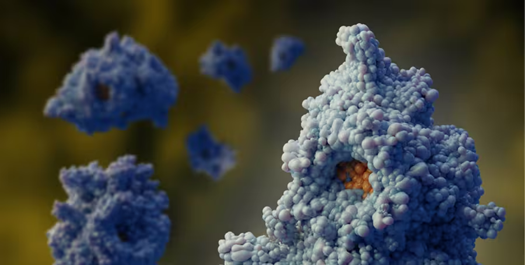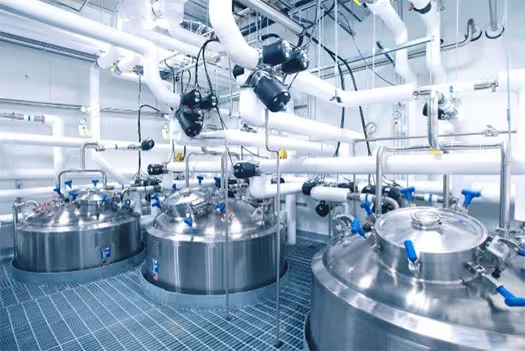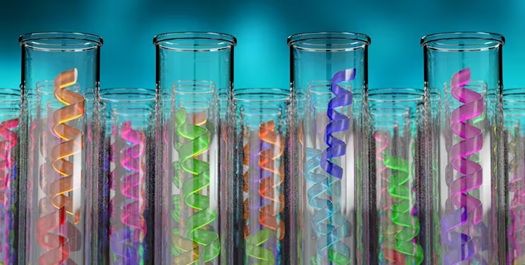Sponsored Content by Bio-TechneReviewed by Olivia FrostJan 8 2024
From off-the-shelf proteins to custom protein products, Bio-Techne’s protein leadership team provides high-grade project-specific solutions.
Protein expert Anthony Person is well-versed in both academia and the bio-pharmaceutical industry. While studying for his PhD at the University of Arizona, Person discovered the role of the TGF beta super-family and WNT glycoproteins in the morphogenesis of mitral and tricuspid valves in chicken and mouse models. As a University of Minnesota postdoctoral researcher, Person continued his research and discovered how mutations in WNT proteins cause outflow track effects in the heart.
Person's career track then took him to R&D Systems, a Bio-Techne brand, where he worked in the protein bio assay unit. He was there for two years before moving on to Cellscript, a Madison Wisconsin company, to focus on developing mRNA-based cellular transformation technologies.
In 2013, Person reunited with the bio assay unit at Bio-Techne. Focusing intently on the production of proteins, Person advanced to associate director of molecular and cell culture at Bio-Techne. In 2018, he once again advanced, this time to become senior director of protein development. Person and his protein development group now specialize in creating the world's most difficult proteins for therapeutics and research.
Bio-Techne’s protein production supports fields like academia, biotech, clinical research (CRO), and pharmaceuticals. The past year was dedicated to creating coronavirus proteins crucial for antibody therapies, vaccines, and diagnostics. One highlight was producing numerous spike proteins, a fascinating scientific endeavor. Bio-Techne launched over 140 SARS proteins last year, making it an exciting period for protein scientists as we contribute to therapies benefiting patients.
What protein services does Bio-Techne provide?
Bio-Techne offers over 5,000 ready-to-use research-grade proteins and GMP proteins for clinical purposes. Custom services cater to projects from pharmaceutical companies, biotech firms, and academia. Bio-Techne specializes in producing some of the most difficult proteins, taking pride in succeeding where others have struggled.
Why does Bio-Techne excel at making difficult proteins?
Bio-Techne introduced their first recombinant protein, interleukin 2, in 1988, and since then, they have been pioneers in protein production. Bio-Techne’s molecular biology director boasts 33 years of expertise in this field. Among the best globally, the protein purification team brings extensive experience and effective strategies to tackle any challenge.
The cutting-edge infrastructure facilitates side-by-side clone screening, enabling the selection of the best clones and plasmids for optimal protein expression and secretion during transient production. The success ultimately hinges on unparalleled experience. With a longstanding history in protein production, Bio-Techne surpassed many others, leveraging this rich expertise to achieve where others falter.
What is the process for making custom protein?
Customers can post inquiries to the customer service team through the website. A conversation leads to a better understanding of the customer's needs. The technical team uses this information to create a statement of work, including gated timelines. A test is performed to see if a gene of interest can be expressed through the host system, and a sample protein is sent to the customer. After customer approval, the production is scaled up to provide large quantities of the approved protein. All custom projects are confidential, and information is never shared with anyone besides the customer.

Image Credit: Bio-Techne
How does Bio-Techne scale up protein production?
Initially, the focus is on maximizing production in small-scale operations to achieve abundant yields. In a mammalian system, expression levels and the quantity of secreted protein are fine-tuned. For proteins in E. coli, the expression is optimized on a small scale during refolding. The approach depends on fulfilling specific customer requirements. Bio-Techne can scale up the production of mammalian and E. coli-derived products to several grams, catering to the downstream applications of the customers.
Does Bio-Techne provide project management for protein production?
The experts who craft the ready-made products are the same ones driving custom workflows. It is a seamless process where the company directly engages with the custom clients and technical leaders via computer or phone. This direct interaction ensures that customers receive top-notch service for their custom projects. Everything happens in-house; molecular, purification, and cell culture experts and any other necessary team members participate in meetings to ensure all vital information is communicated effectively.
Can you talk about Bio-Techne’s GMP services?
Customers generally use GMP proteins as ancillary materials for clinical applications, so they must have a consistent supply of high-quality protein with minimal variations between lots. Each project comes with complete documentation of the production of the GMP proteins and their performance in quality control testing. These GMP proteins are produced under strict animal-free conditions, wherever possible. This includes all materials, equipment, dedicated laboratories, and documentation. The Quality Team is responsible for meeting all relevant guidelines from governing authorities.

Image Credit: Bio-Techne
What was the greatest challenge for the team during the pandemic?
There was urgency in launching new products promptly. For instance, the Delta variant of the SARS-CoV-2 spike protein was on the website. Pharmaceutical and biotech researchers require these proteins immediately. To expedite the process, Bio-Techne streamlined the time-to-market using a transient platform. This involves creating the plasmid, transfecting it into HEK 293 cells, producing the protein rapidly, purifying it, and swiftly making it available on the website.
What is an important but often overlooked aspect of protein production?
Protein stability and formulation are essential. Many competitors prioritize speedy market delivery, but analytically, their proteins lack stability. They are formulated in buffers unsuitable for long-term, freeze-thaw, or four-degree stability—a crucial oversight. Formulation and stability tests are pivotal for top-notch products.
Bio-Techne possesses top-tier bioassay capabilities, ensuring consistency across protein batches. The proteins maintain stability over time, resisting precipitation during freeze-thaw cycles or prolonged storage at 4 ºC.
What is the future of protein production?
Staying at the forefront of innovation is the key. Bio-Techne integrates cutting-edge development tools that expedite plasmid creation and employ advanced cell culture devices for controlled automated side-by-side reactions. Automation plays a pivotal role in the purification processes, ensuring top-quality proteins.
Leveraging structural biology, Bio-Techne crafts custom cytokines. The future emphasis revolves around leveraging structural biology for novel cytokine designs, employing automation to minimize production errors, and enhancing scalability.
What are the advantages of protein production with Bio-Techne?
Bio-Techne makes proteins of only the highest quality with dedication and care to ensure consistency. The proteins undergo robust stability tests, and a large analytical core surveys the proteins to ensure accuracy and the absence of contaminants. Bio-Techne is a premium vendor of proteins.

Image Credit: Bio-Techne
About Bio-Techne

Bio-Techne Corporation is a leading developer and manufacturer of high-quality purified proteins - notably cytokines and growth factors, antibodies, immunoassays, as well as biologically active small molecule compounds - which are sold to biomedical researchers and clinical research laboratories; these operations constitute the core Biotech Division, headquartered in Minneapolis, Minnesota.
The Protein Platform Division manufactures innovative protein analysis tools under the ProteinSimple brand name that greatly automate western blotting and immunoassay practices. The Diagnostics Division manufactures FDA-regulated controls, calibrators, blood gas, and clinical chemistry controls for OEM customers and clinical customers. Bio-Techne products assist scientific investigations into biological processes and the nature and progress of specific diseases. They aid in drug discovery efforts and provide the means for accurate clinical tests and diagnoses.
With thousands of products in its portfolio, Bio-Techne generated approximately $563 million in net sales in fiscal 2017 and has approximately 1,800 employees worldwide.
Sponsored Content Policy: News-Medical.net publishes articles and related content that may be derived from sources where we have existing commercial relationships, provided such content adds value to the core editorial ethos of News-Medical.Net which is to educate and inform site visitors interested in medical research, science, medical devices and treatments.